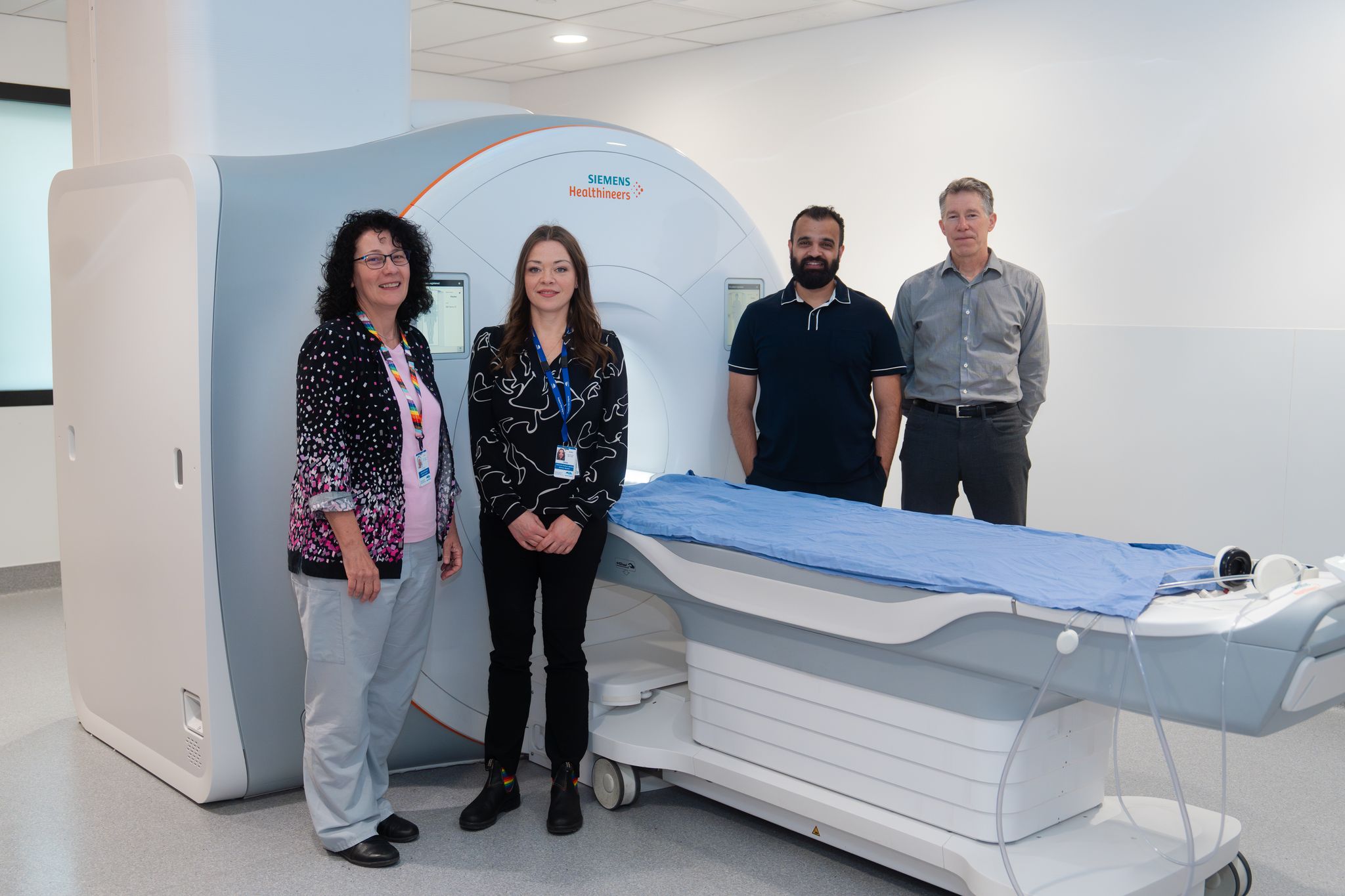Patients across the Island Health region are benefiting from quicker, higher-quality magnetic resonance imaging (MRI) scans powered by artificial intelligence (AI) software following successful pilot projects in Nanaimo.
Trina Gulay, medical imaging manager at Nanaimo Regional General Hospital (NRGH), highlighted some of the key benefits of the AI-assisted approach. “We saw pretty early gains that we could reduce the scan times, get higher quality pictures and have patients in and out in a shorter amount of time than we could in the past,” she said.
AI, a technology that learns rapidly through experience and adapts to new situations, is impacting many areas of health care, including medical imaging. In 2022, a pilot began at NRGH that involved using an MRI device featuring an early version of AI software. Another pilot took place in 2023 with updated software, and the software was then adopted permanently.
MRI scans provide in-depth images of organs and tissues; they’re typically used for neurological, abdominal, cardiac, musculoskeletal and pelvic imaging purposes. In 2024, more than 16,000 scans were conducted at NRGH, and nearly 64,000 were conducted throughout the Island Health region – numbers that continue to increase annually.
From left Patricia Maile, MRI technologist, Trina Gulay, medical imaging manager, Mandeep Hayer, MRI regional practice lead and Dr. Brent Carson, MRI medical director appear alongside an AI-assisted MRI machine at NRGH.
Gulay helped lead this work at NRGH, along with colleagues Mandeep Hayer, MRI regional practice lead and clinical coordinator and Dr. Brent Carson, MRI medical director and radiologist, as well as frontline staff. Members of the NRGH team also published a corresponding research paper on AI and MRI capabilities.
In the past, producing high-quality MRI scans required significantly more time, said Hayer. “Now with the integration of AI, we can achieve superior image quality much faster. At Island Health, we’ve worked closely with lead radiologists across each region to enhance image quality while reducing scan times,” he said. “This advancement has led to shorter MRI appointment durations for certain scans, enabling more patients to be scanned each day and significantly improving access to care.”
In general, scans for body parts that previously took about 10 to 15 minutes – such as shoulders, knees and spines – can now be performed in as quickly as five minutes. Appointments for some MRI scans that used to be in half-hour time slots have been reduced to 20 minutes.
Shorter scan times can also significantly improve patient comfort. “For some patients, sitting in an enclosed tube for 20 minutes is really difficult, and we need to do a lot of coaching to put them at ease, or give them a sedative and then they can’t drive home,” said Gulay. “Now, it’s much easier to coach somebody through a five-minute scan versus 20 minutes, and they may not need a sedative.”
However, she stressed that human oversight and expertise remain crucial – for example, to detect image anomalies that may appear in an MRI scan. The team also needs to be aware of how the new technology performs compared to older equipment, and ensure that there are no significant errors or missing information.
Jeff Beresford, director of medical imaging, applauded the work of the NRGH team and highlighted the benefits of the AI-assisted approach. “As a result, we can reduce our appointment times so we can serve more patients in our communities,” he said.
Since the NRGH pilots, AI-enhanced MRI software has been introduced at Royal Jubilee Hospital, Victoria General Hospital, and both North Island hospitals in Campbell River and Comox Valley. Meanwhile, Gulay and Hayer continue to work with other MRI specialists across Canada, including those at the BC Children’s Hospital and Alberta Health Services.
“We see that there's a lot more potential, and we're wanting to stay ahead of that because we do think the landscape for MRI in 10 years is going to be drastically different than it is even today,” said Gulay, who has worked with MRI technology since 2000. “The amount that it's changed since then has been dramatic and I only see it going more and more cutting edge. It's innovative and it's exciting.”
